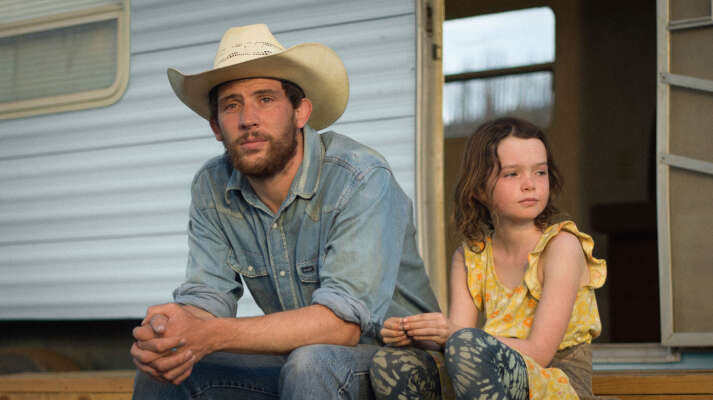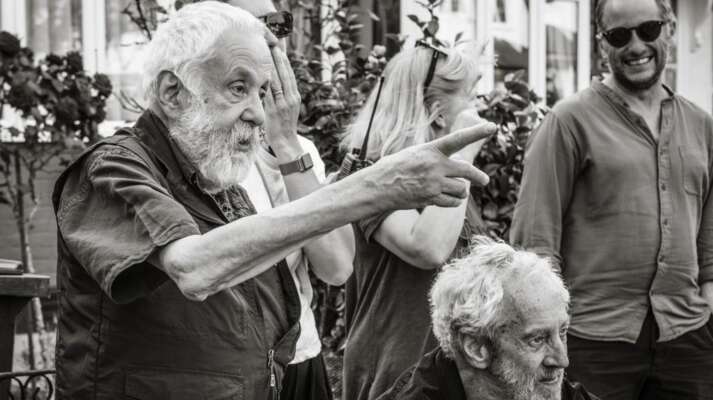William Nicholson Sets a Heroic Tone
Breathe’s screenwriter finds the heart of a story in his characters
William Nicholson Sets a Heroic Tone
Written by Peter Bowen
Breathe’s producer Jonathan Cavendish was inspired to create a film about his parents while watching William Nicholson’s play Shadowlands. “Not only was it a very good play,” remembers Cavendish, “but it also had a voice and tone that I recognized, and one I knew would suit a film about my parents and their life.” Cavendish took Nicholson out to lunch, told him about his parents, Robin and Diana Cavendish, and, before coffee was served, the two were making a movie. The Academy Award-nominated Nicholson was attracted to the project by the Cavendishes’ indomitable spirit. After Robin (Andrew Garfield) is stuck down by polio in the prime of his life, he finds the strength to go on with the love of his wife (Claire Foy). “It’s an extraordinarily strong affirmation of the power of being alive,” Nicholson explains. “That was the heart of it for me.” Throughout his career, Nicholson has shown a singular talent for finding the heart of a story, as well as that of the complex characters he heroically portrays.
While Nicholson knew his heart lay in becoming a writer when he was just ten, it took him many years to get there. After studying English at Cambridge University, Nicholson found his way into the arts by making documentary films for the BBC. Working on their Everyman series, he started to develop an ear for hearing other people’s stories. “Essentially I was meeting people and asking: 'What happened to you?'” he tells The Guardian. This experience led to him writing TV dramas about well-known people. After writing a screenplay about Martin Luther in 1985, Nicholson stumbled on to the story that would not only change his life, but show him how to connect emotionally to his characters.

When a friend told him the story of C.S. Lewis, the theologian famous for penning the Narnia series, and his surprising marriage of convenience to the American writer Joy Gresham, Nicholson found an unexpected connection with his subject. “I was 33 and not in a long-term relationship, pretending this was because I was a writer,” Nicholson remembers to The Guardian. “But the truth was that I was frightened of love, and I think I spotted that in Lewis and so I poured my emotions into that story and it worked because those emotions were true." His TV film proved so poignant that the screenplay was adapted into a play in 1989, and then a feature film in 1993 (with Anthony Hopkins and Debra Winger) for which Nicholson was nominated for an Academy Award. “It’s a testament to the nuanced writing of William Nicholson,” notes Variety, “that the drama works effectively on both personal and collective levels.”

Moving to Hollywood, Nicholson applied his empathetic ear to finding the heart of very different characters. For Michael Apted’s Nell, a drama about a doctor (Liam Neesom) dealing with a wild child (Jodie Foster) in the mountains of North Carolina, Nicholson crafted a story that allowed the viewer to empathize with the terror and wonder experienced by the title character. “We approach this story with the same fascination that Nell faces each day, seeing, if only for a short time, how different the world––and people––can be,” notes ReelViews. For Ridley Scott’s Roman epic Gladiator, Nicholson was brought on to make the Russell Crowe character a more rounded and complex figure. After several drafts by different writers, the filmmakers found themselves with an exciting story that was all sharp edges. “Maximus was just a killing machine,” recounts Nicholson. “I changed the story so that he acted out of love, not hate.”

In his films, Nicholson often shines brightest when he brings to the screen the invincible spirit of characters whose struggles might have just as easily broken them. For Mandela: Long Walk to Freedom, Nicholson worked with producer Anant Singh for nearly two decades to adapt the South African leader’s autobiography in the right way. “Our film is not a full historical record,” Nicholson told The Guardian. “It tries to make people who have never heard of apartheid and care nothing for South Africa care about this man, and what he came to stand for.” He applied equal care in adapting (along with Joel and Ethan Coen and Richard LaGravenese) Unbroken, Laura’s Hillenbrand’s memoir of World War II hero Louis "Louie" Zamperini. The multilayered tale of an Olympic athlete whose mettle is truly tested when he becomes a POW in a brutal Japanese prison never loses sight of the subject’s enduring belief in his fellow man. For Screen Rant, “the writers do a good job…keeping the focus on the emotional/spiritual arc of Louis as a consistent through line.”


